A Human Rights Revolution
Chile became a cornerstone of a global human rights revolution in the 1970s. Worldwide and in Chile, activists, such as the Families of the Detained and Disappeared (AFDD), publicised the dictatorship’s violence, demanding action. In response, the United Nations General Assembly voted annually to denounce human rights abuses in Chile from 1974 to 1989.
The human rights revolution also led to broader conversations about democratic rights, including rights for women and refuges into the 1980s. Shaping these conversations were groups like Chile Democrático-GB, founded by Chilean exiles in 1982, and the Chile-based committees for the Defence of People’s Rights (CODEPU) and Women’s Rights (CODEM). Across Europe, the Support Committee for Chilean Women (CAMUR) also brought attention to women’s experiences in Chile.
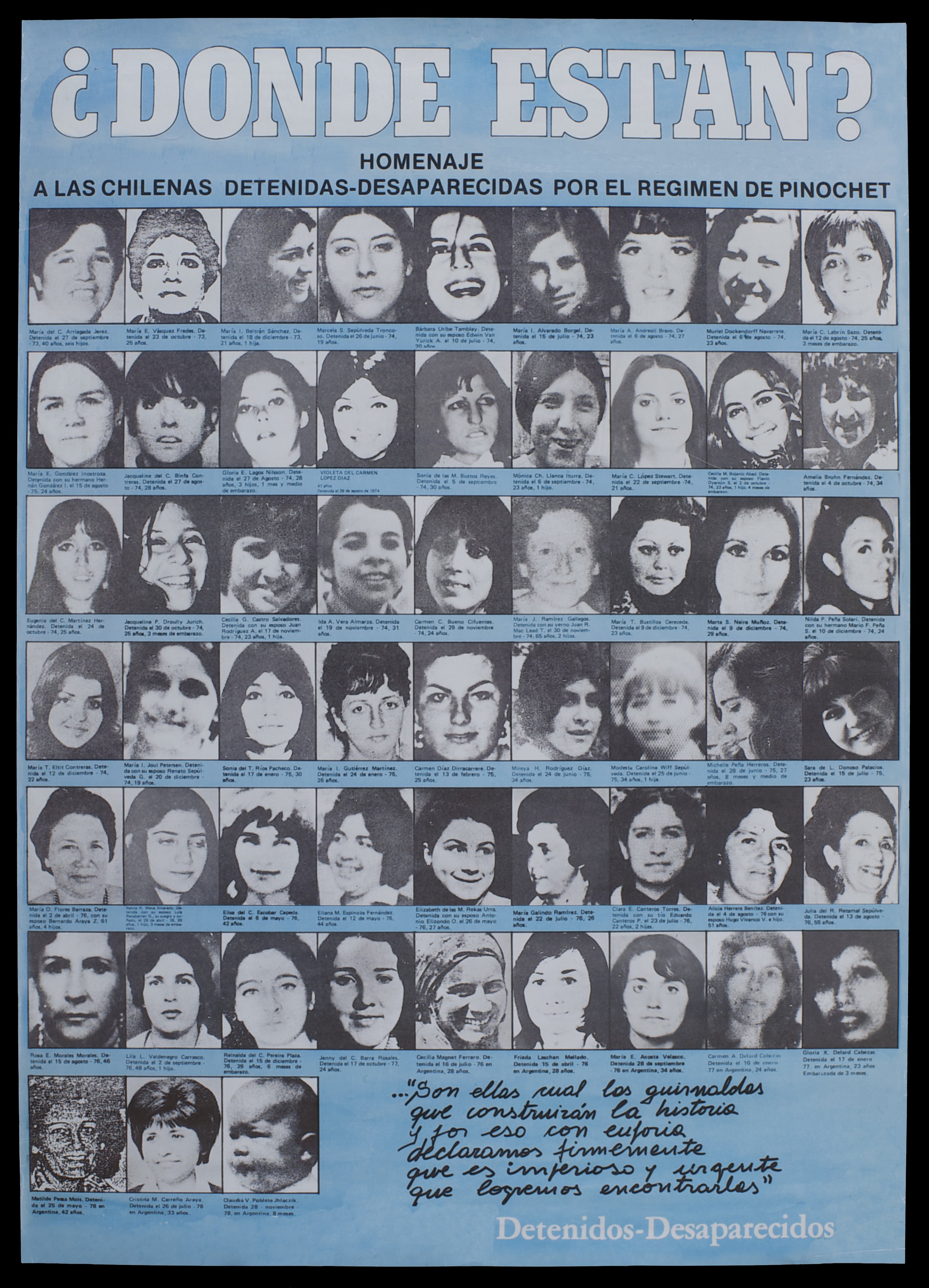
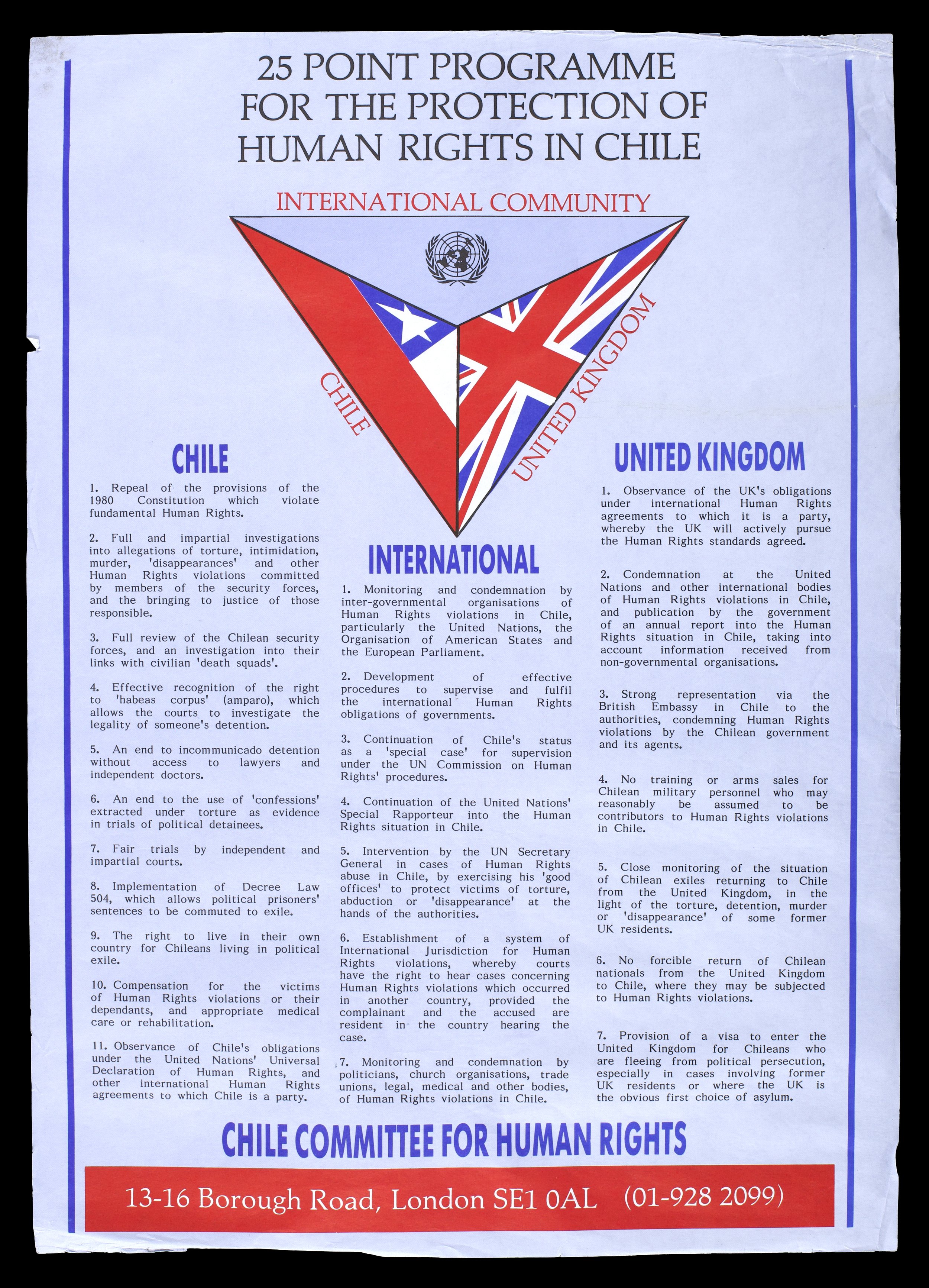
Recording Abuse
Recording what was happening in Chile was urgent and imperative as a means of fighting impunity and misinformation. By documenting the dictatorship’s human rights violations, Chilean exiles, solidarity activists, lawyers and human rights organisations such as Amnesty International raised awareness, helped apply international pressure on the dictatorship and ultimately saved lives.
Established in Britain in 1974, the Chile Committee for Human Rights (CCHR), also played a vital role in denouncing violations, including the dictatorship’s use of “disappearance” as a devastating repressive tool.
Use the arrows and thumbnails to the right to read the CCHR’s 1977 report on secret prisons and disappearance in full.
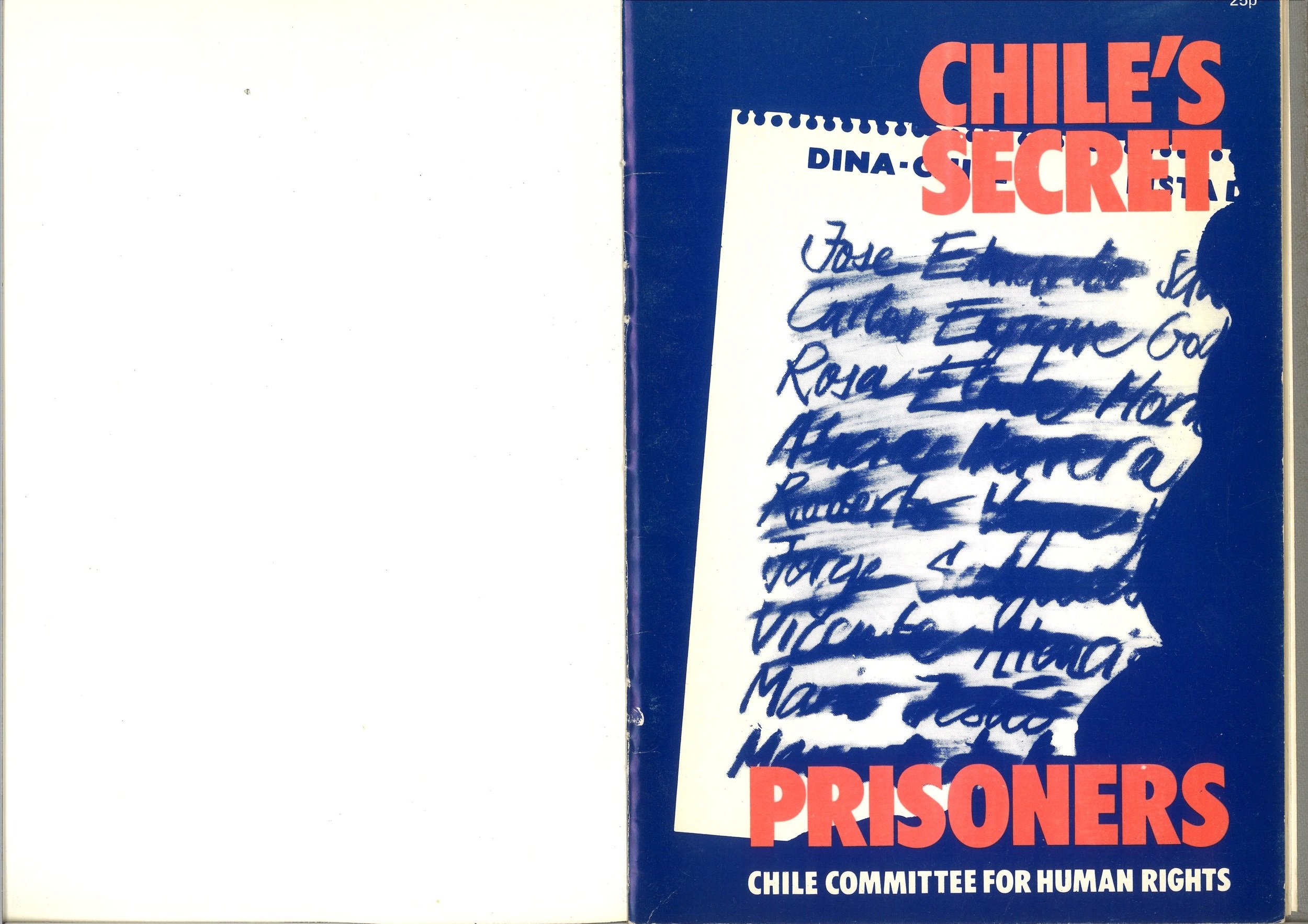
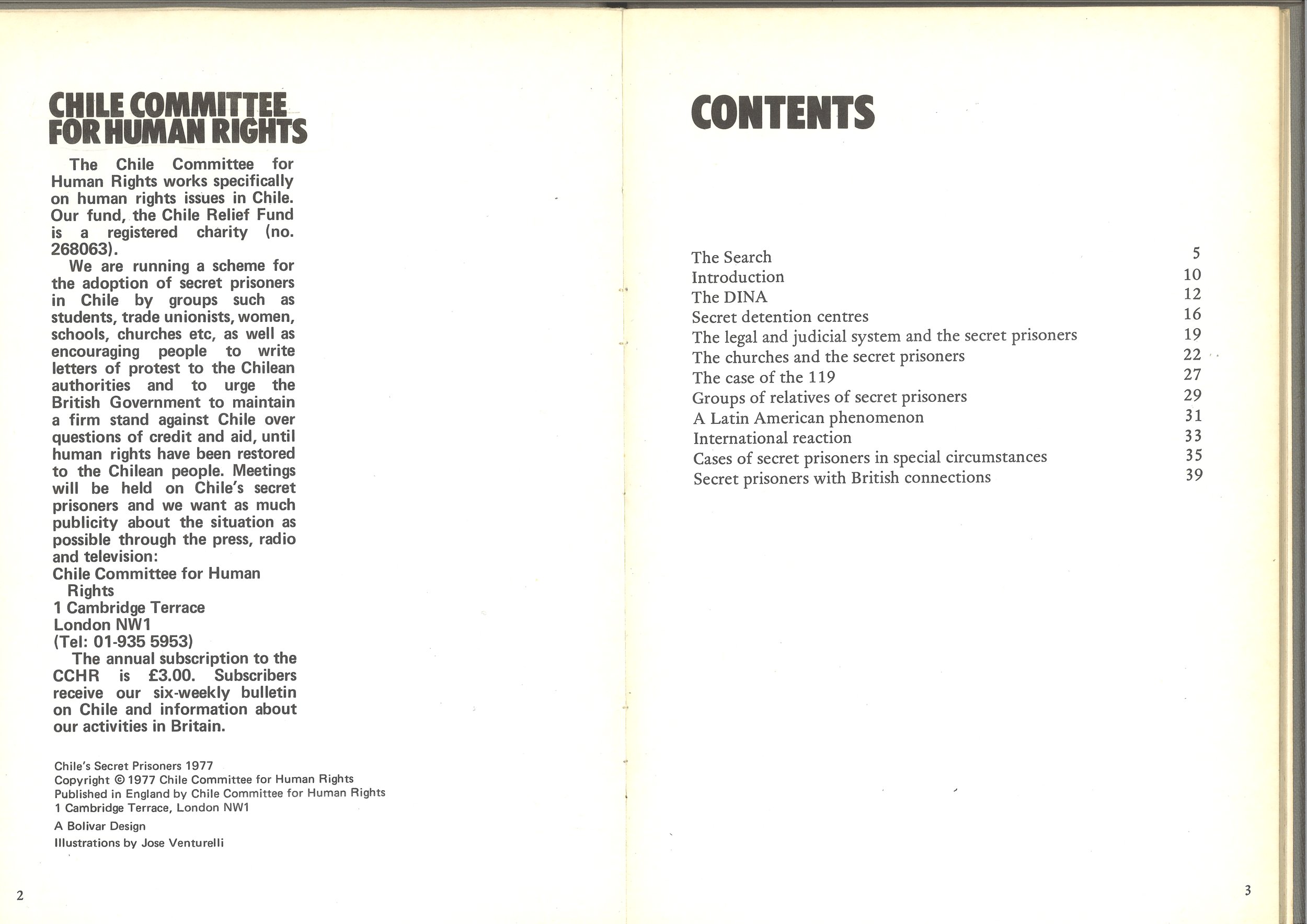
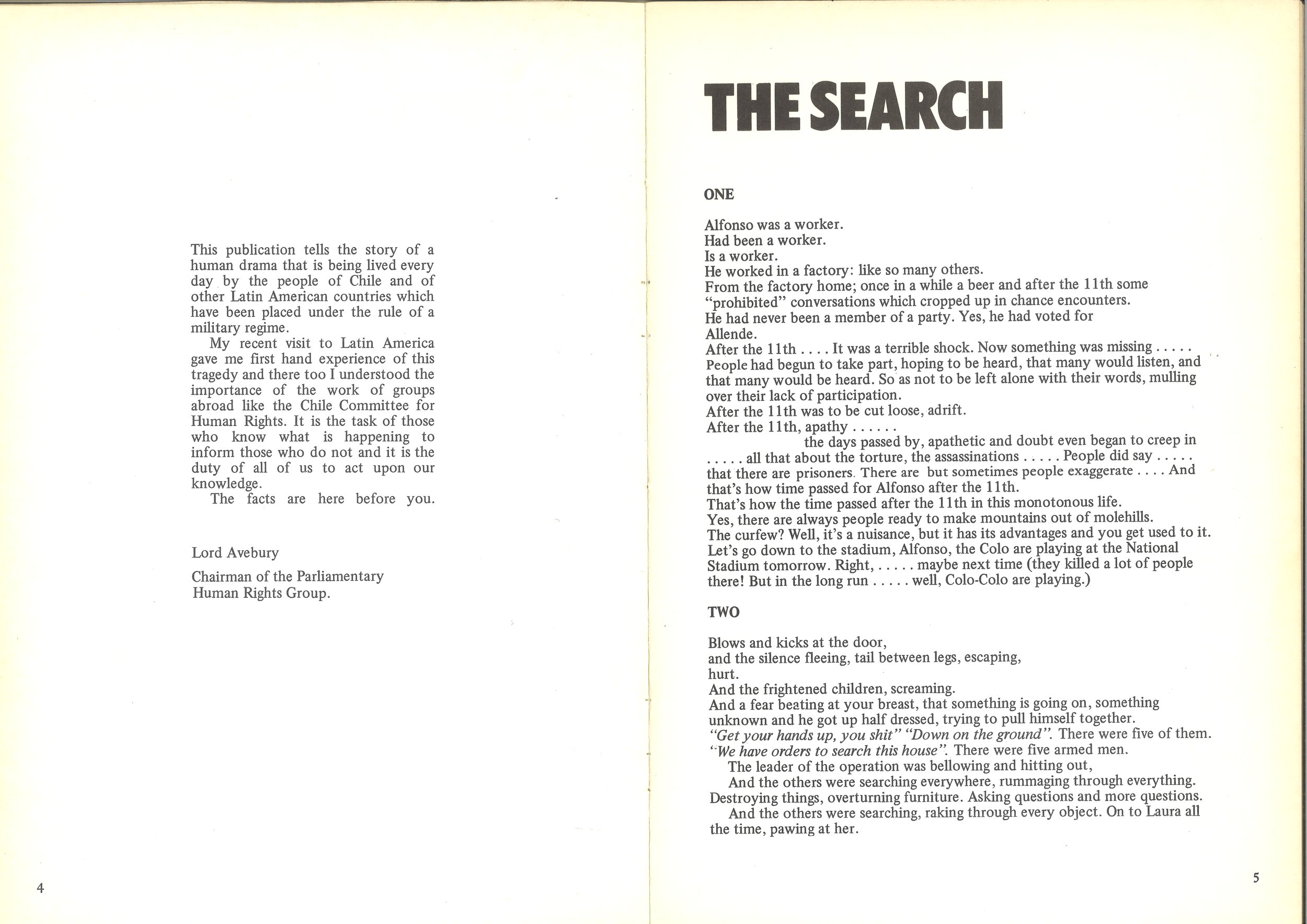
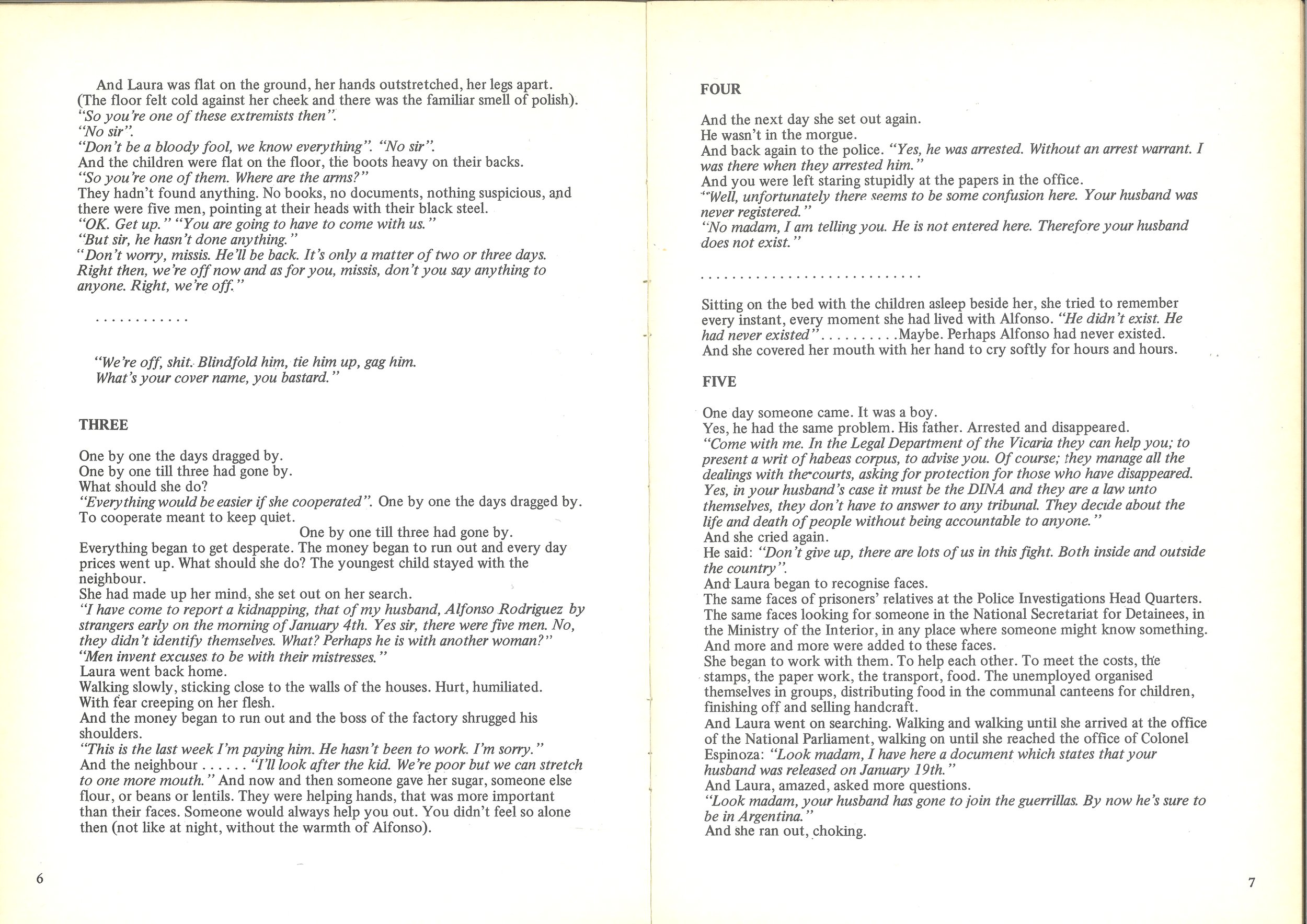
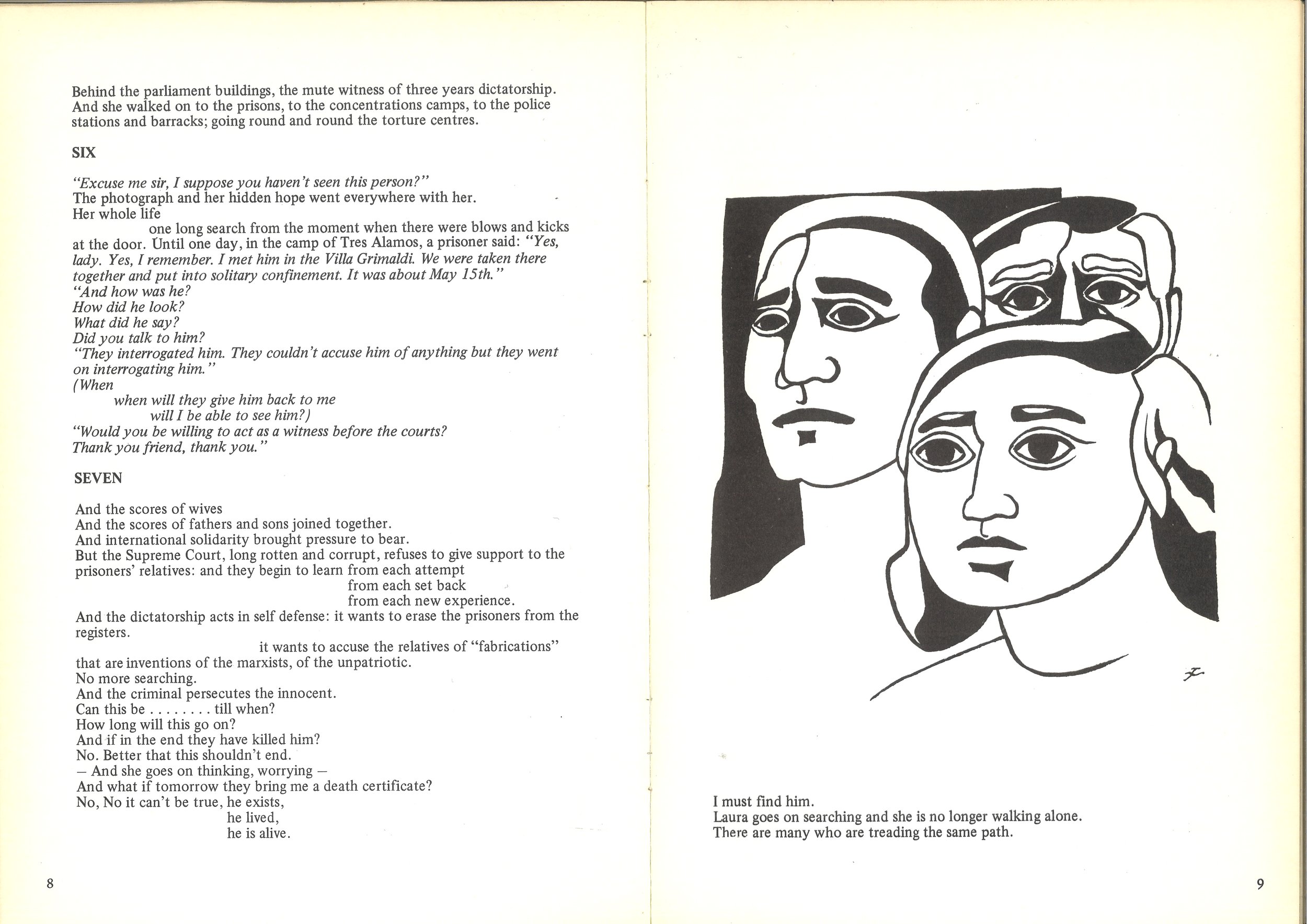
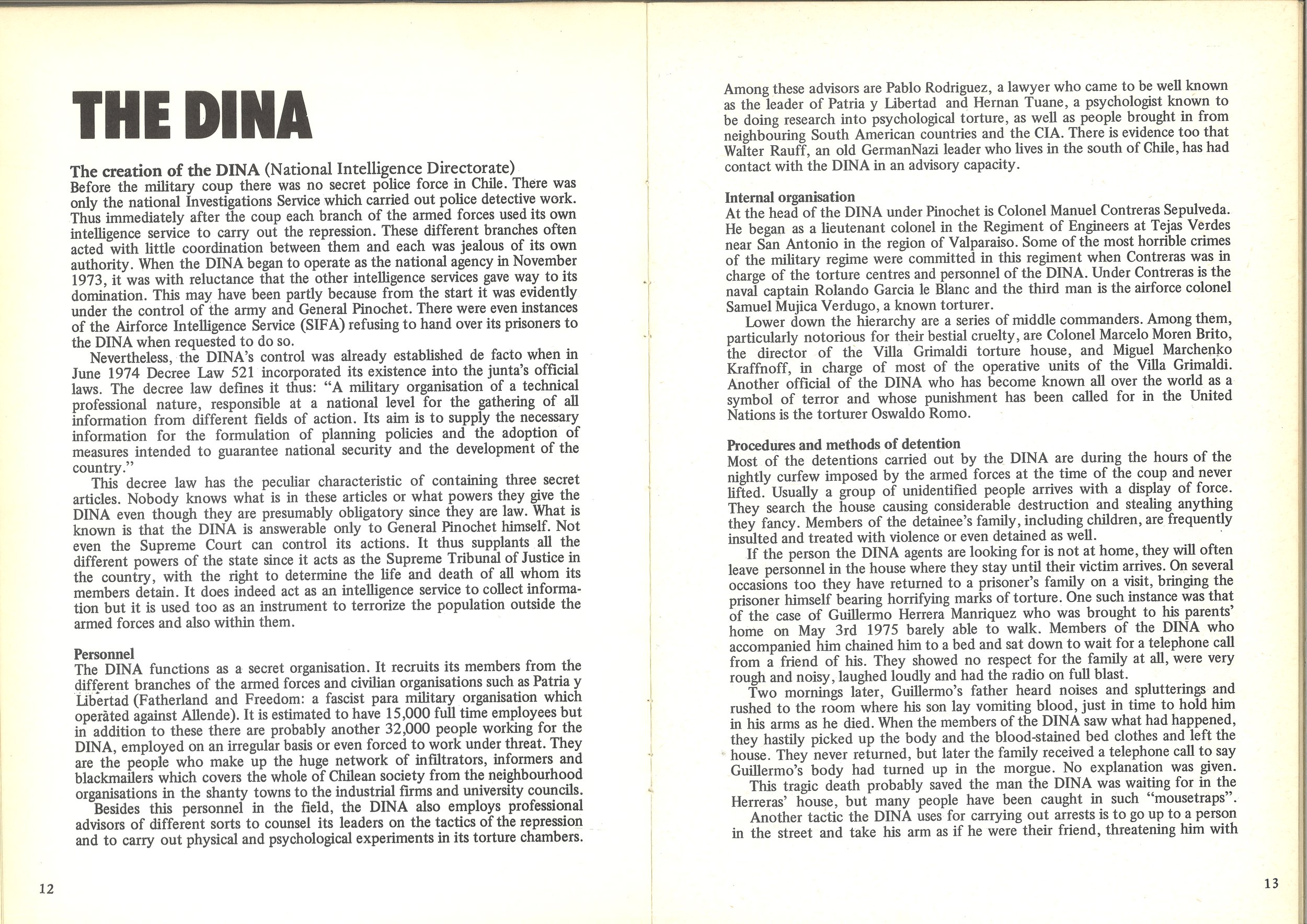
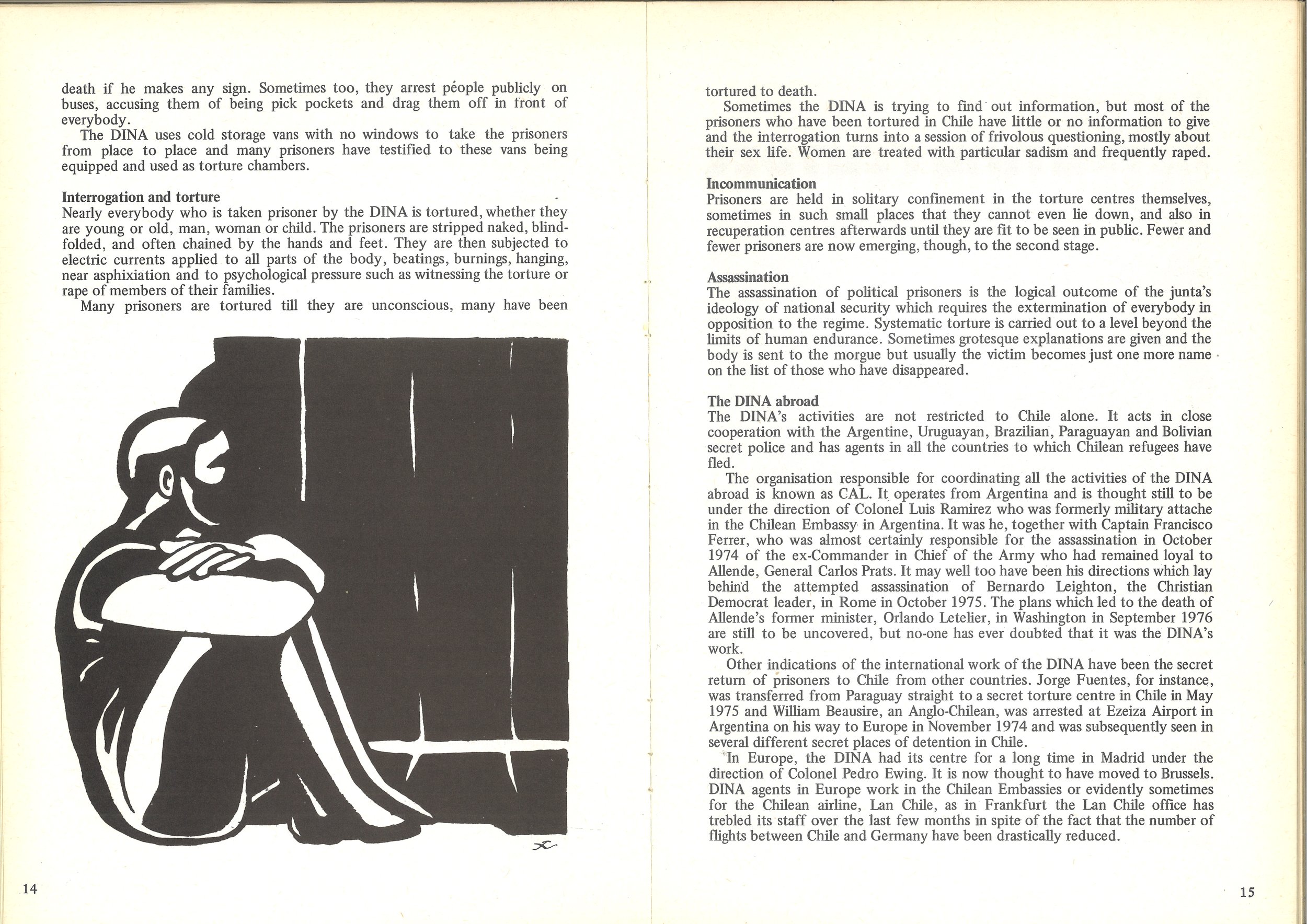
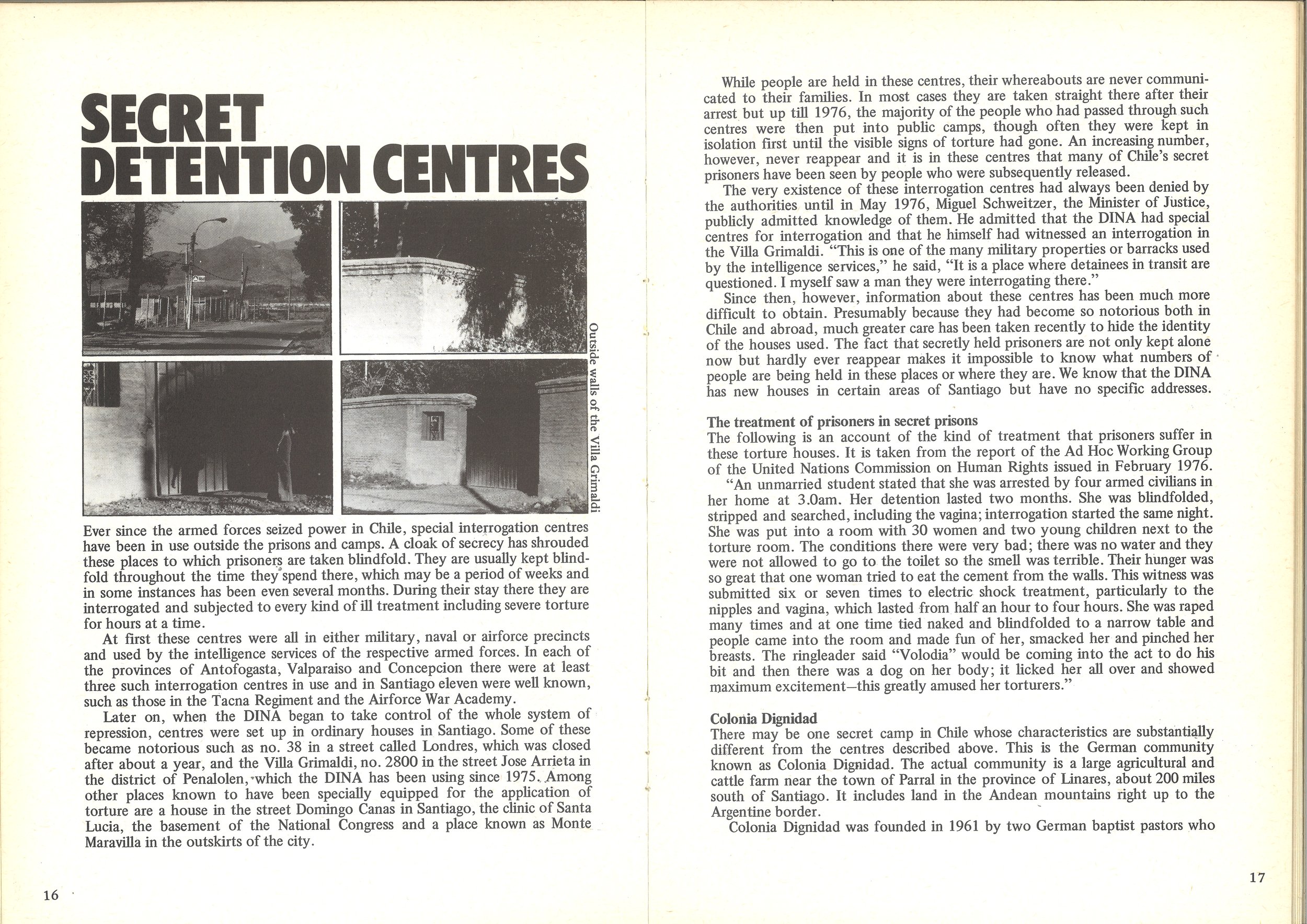
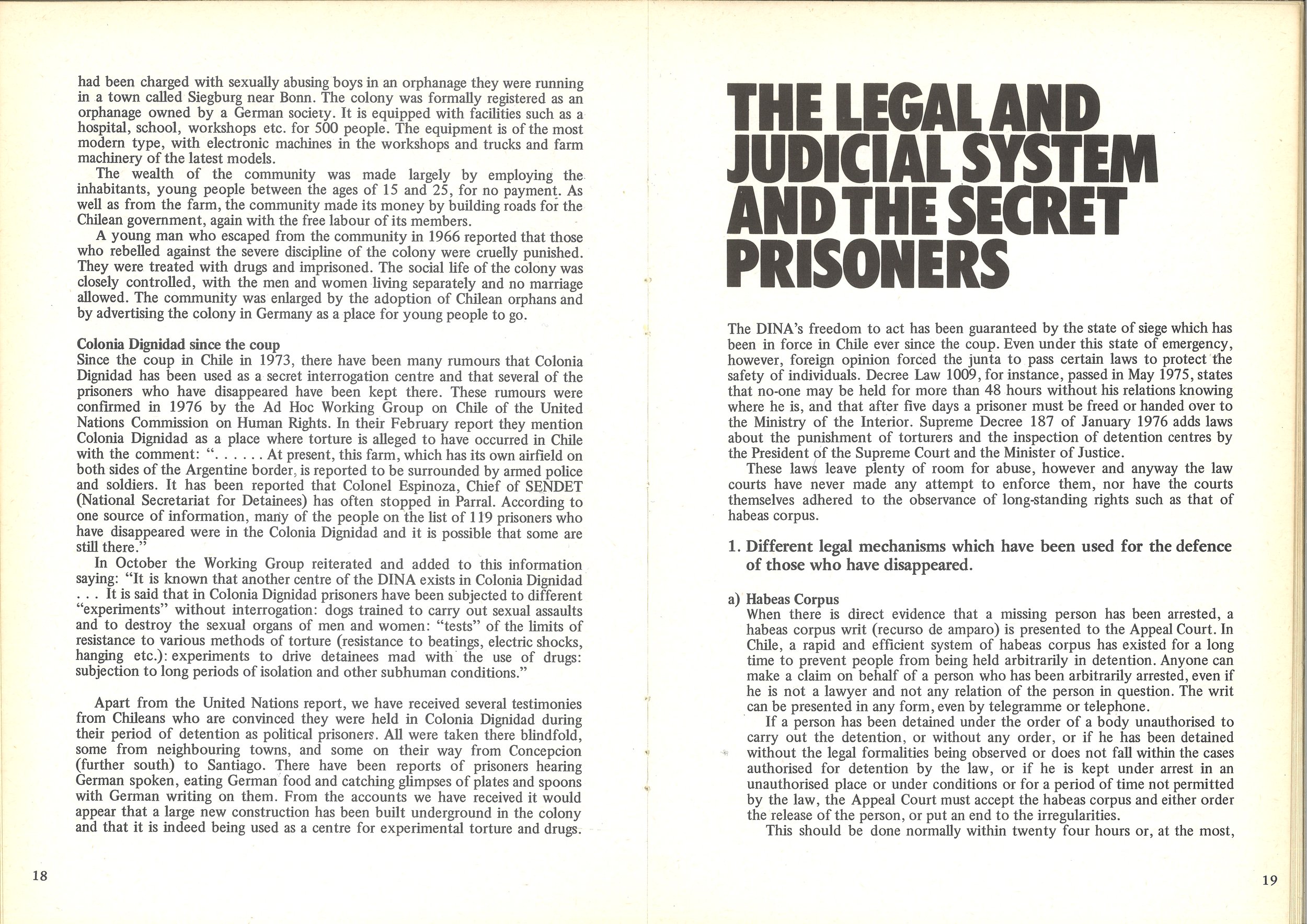
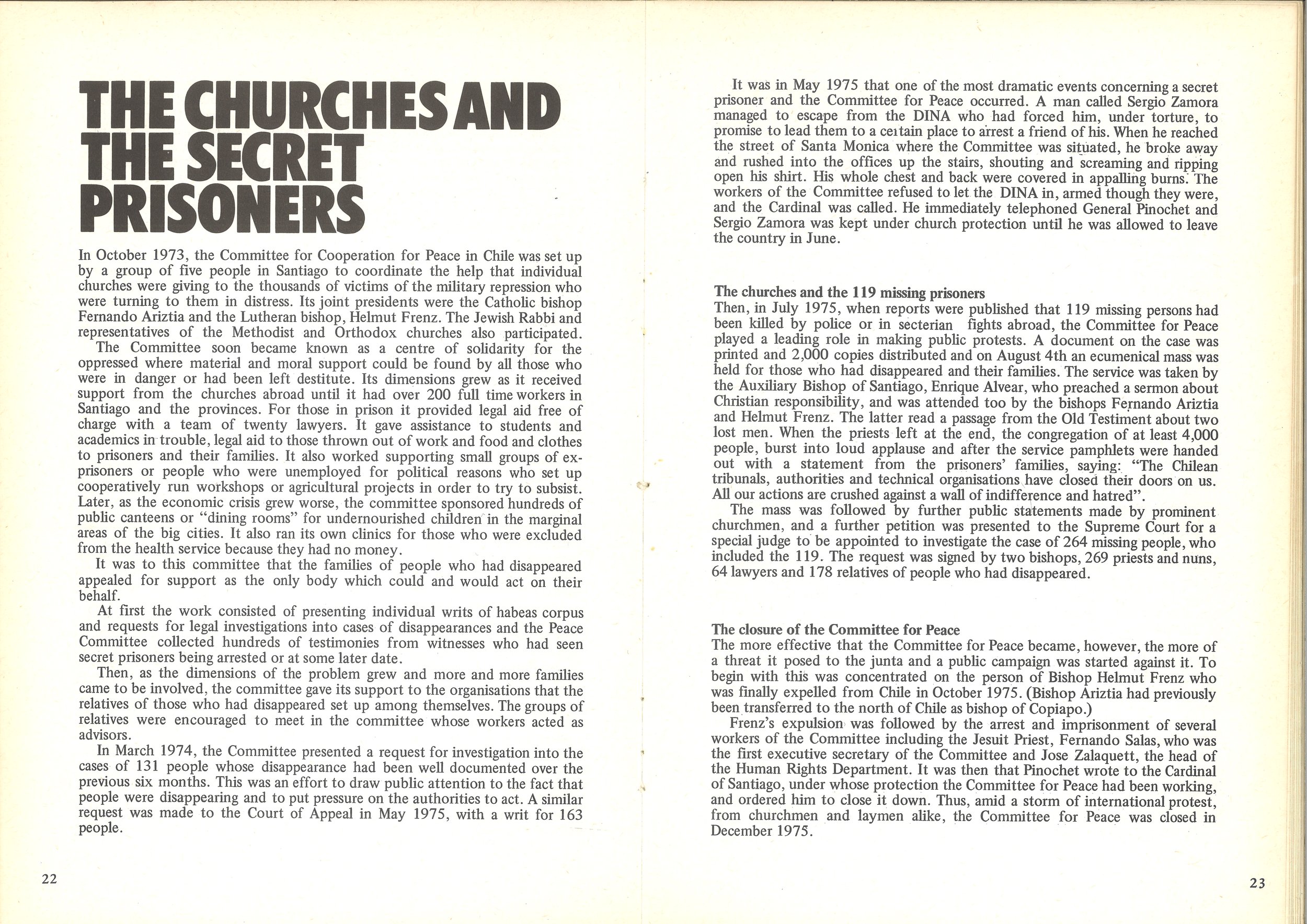
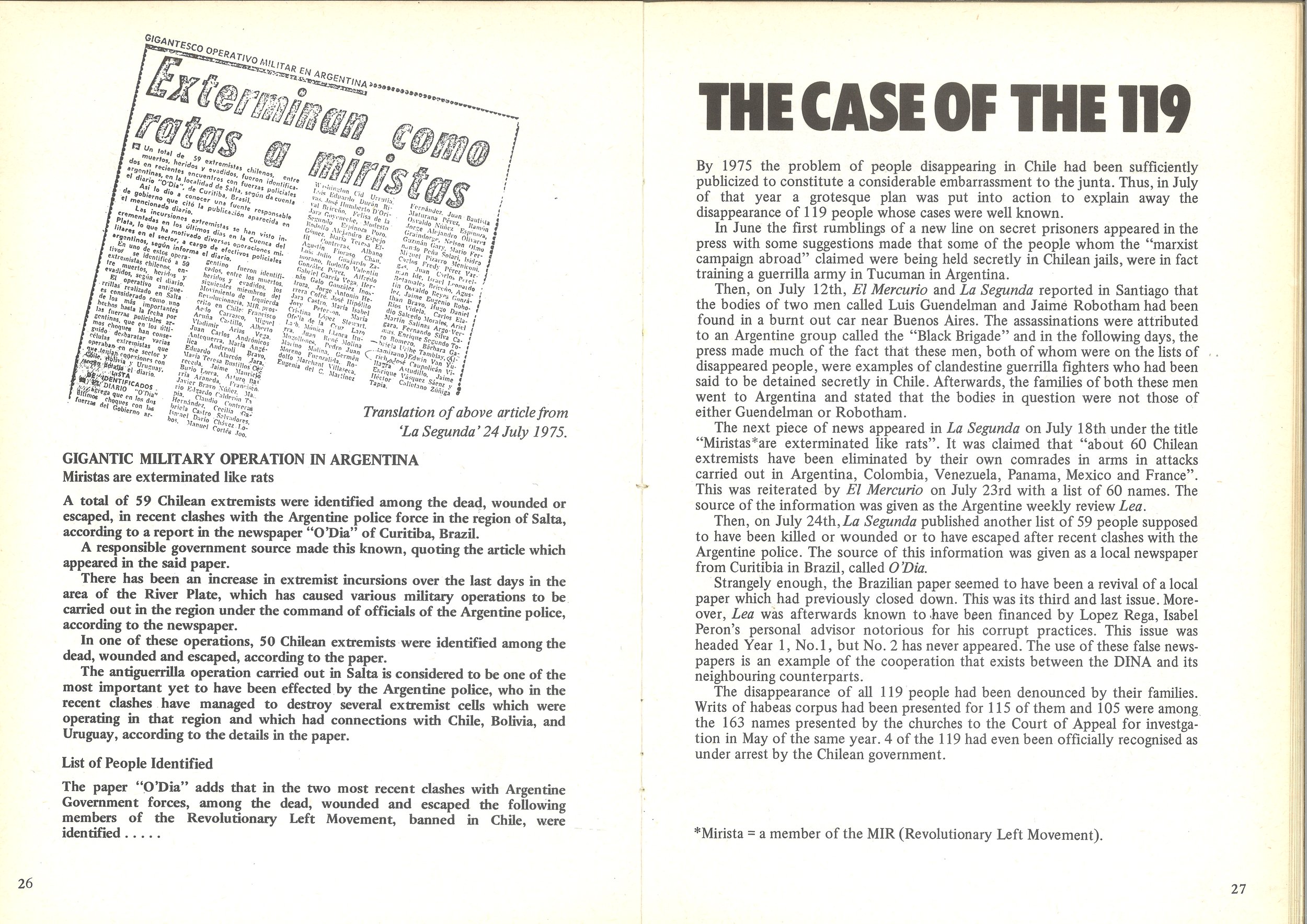
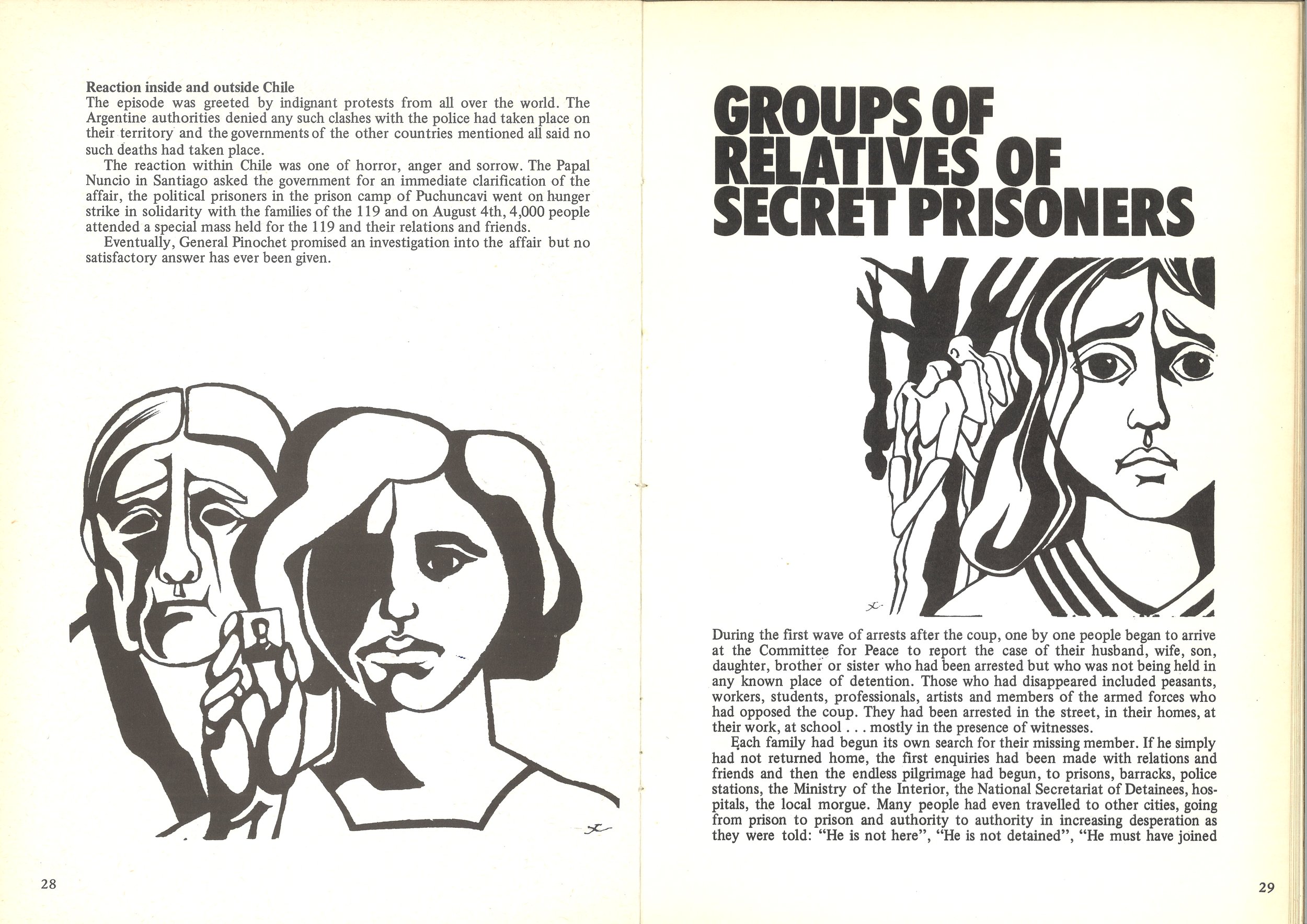
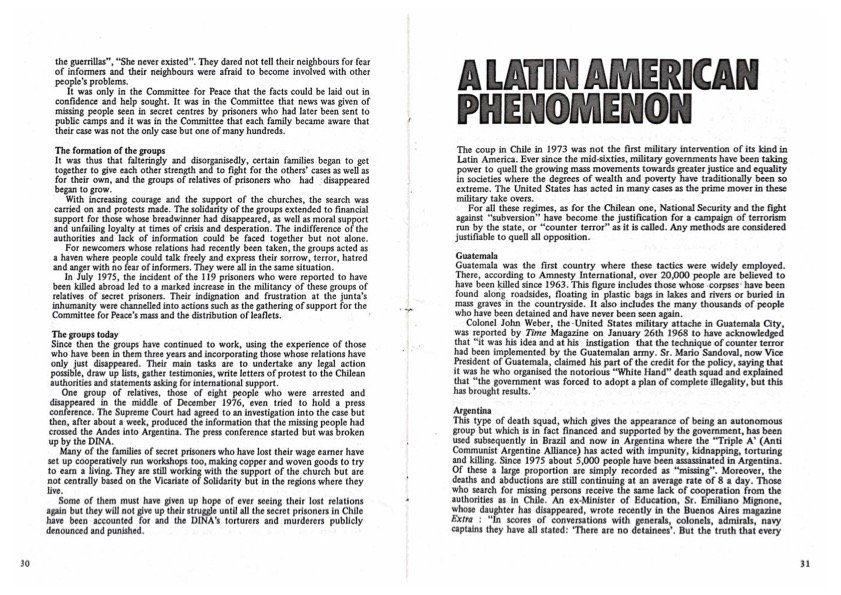
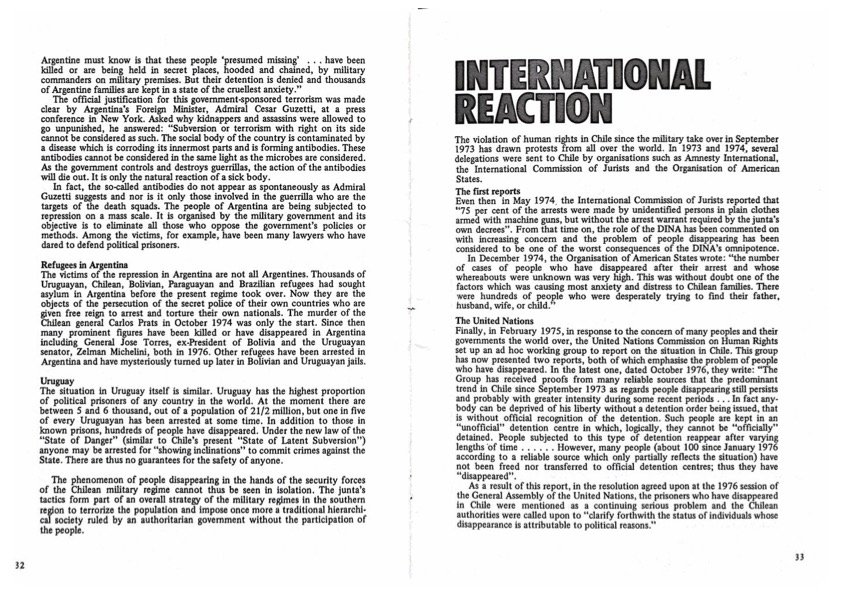
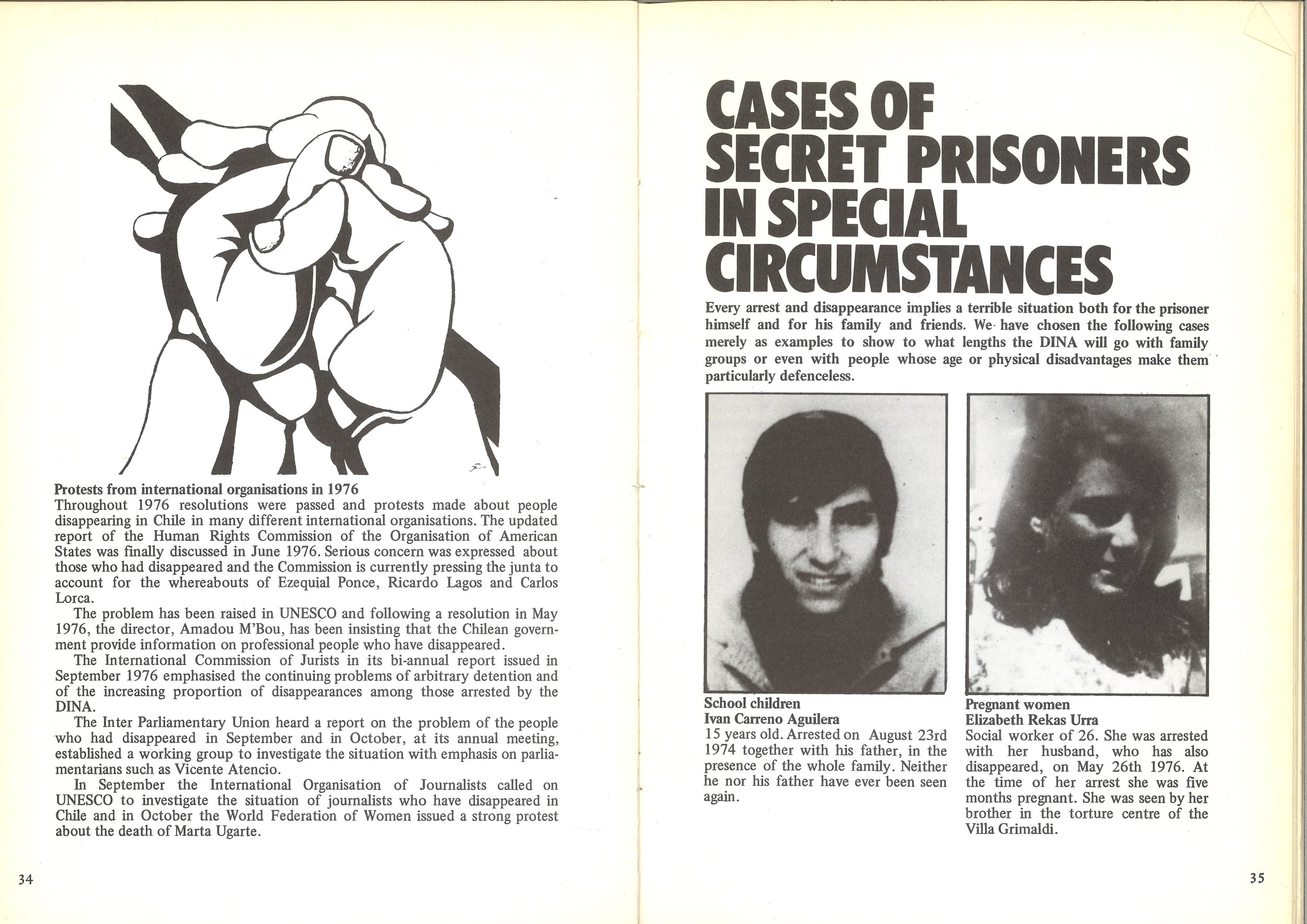
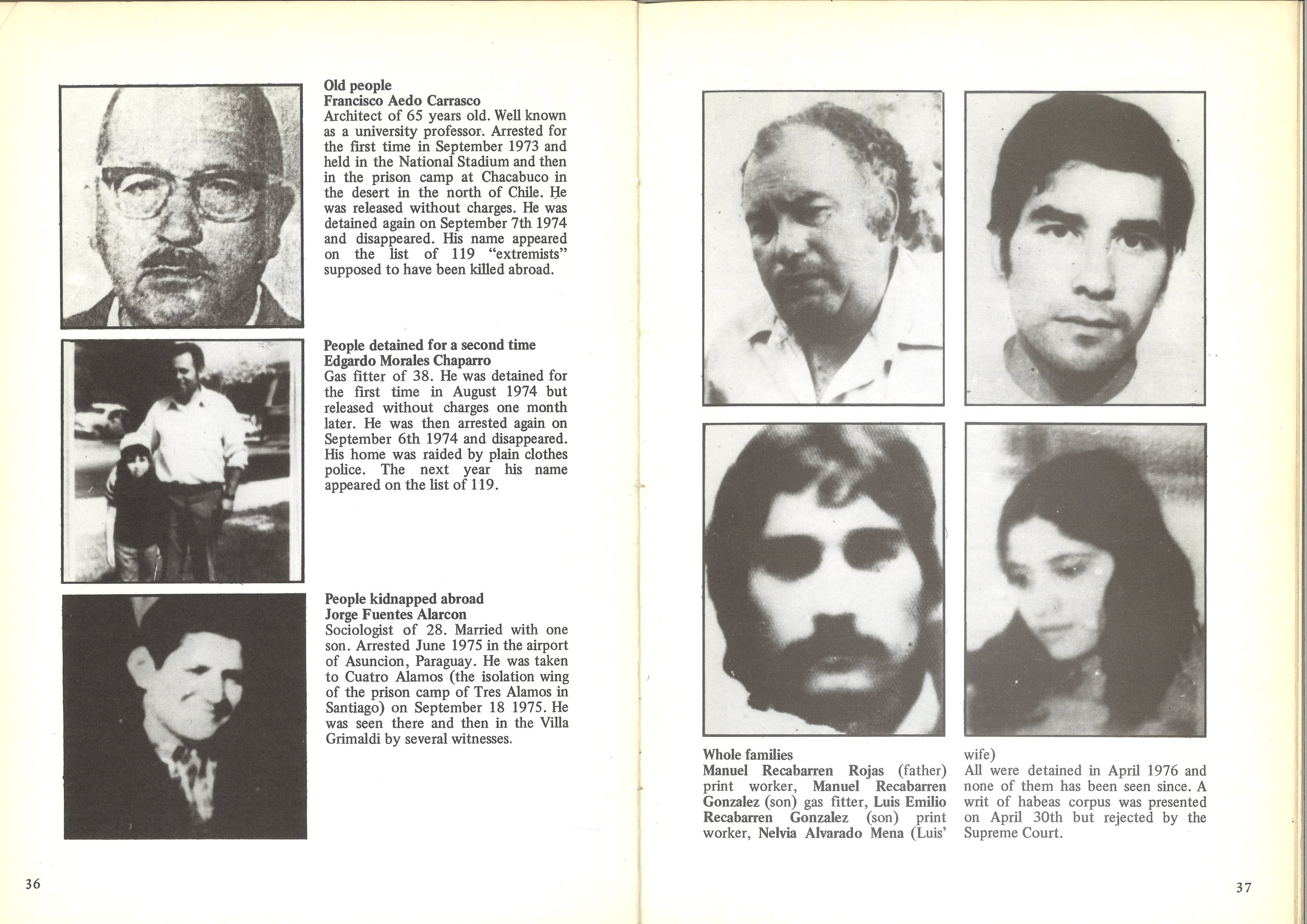
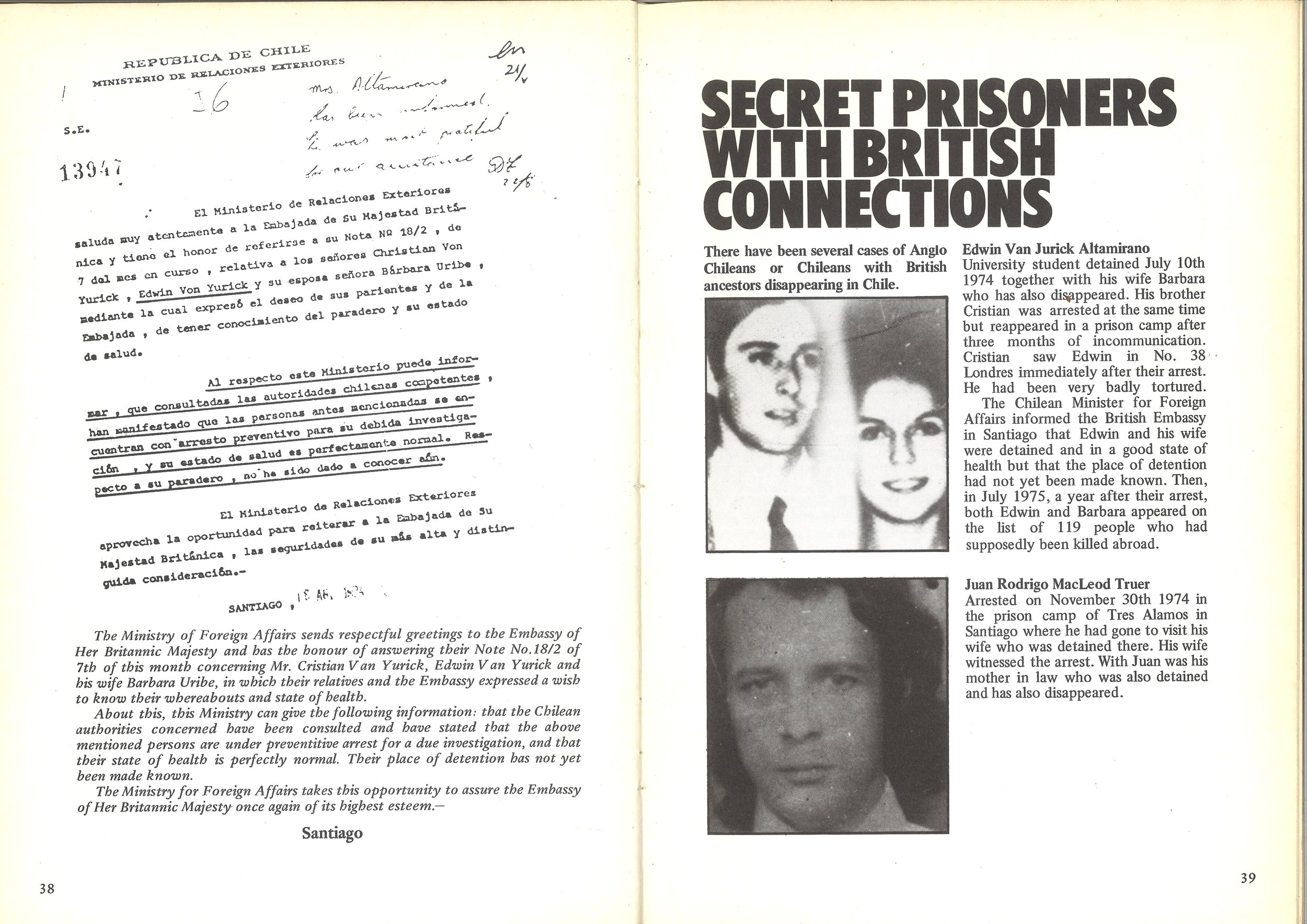
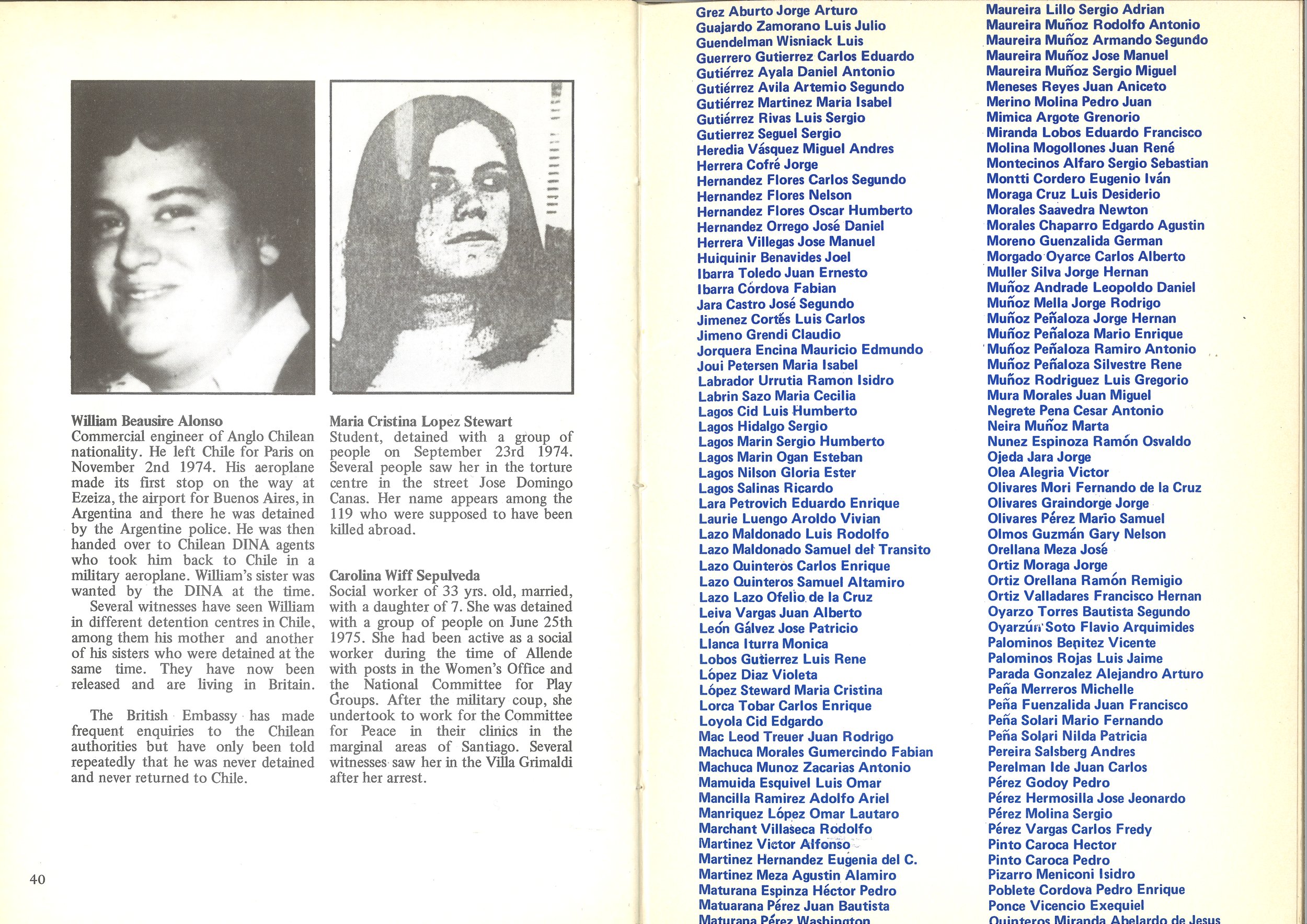
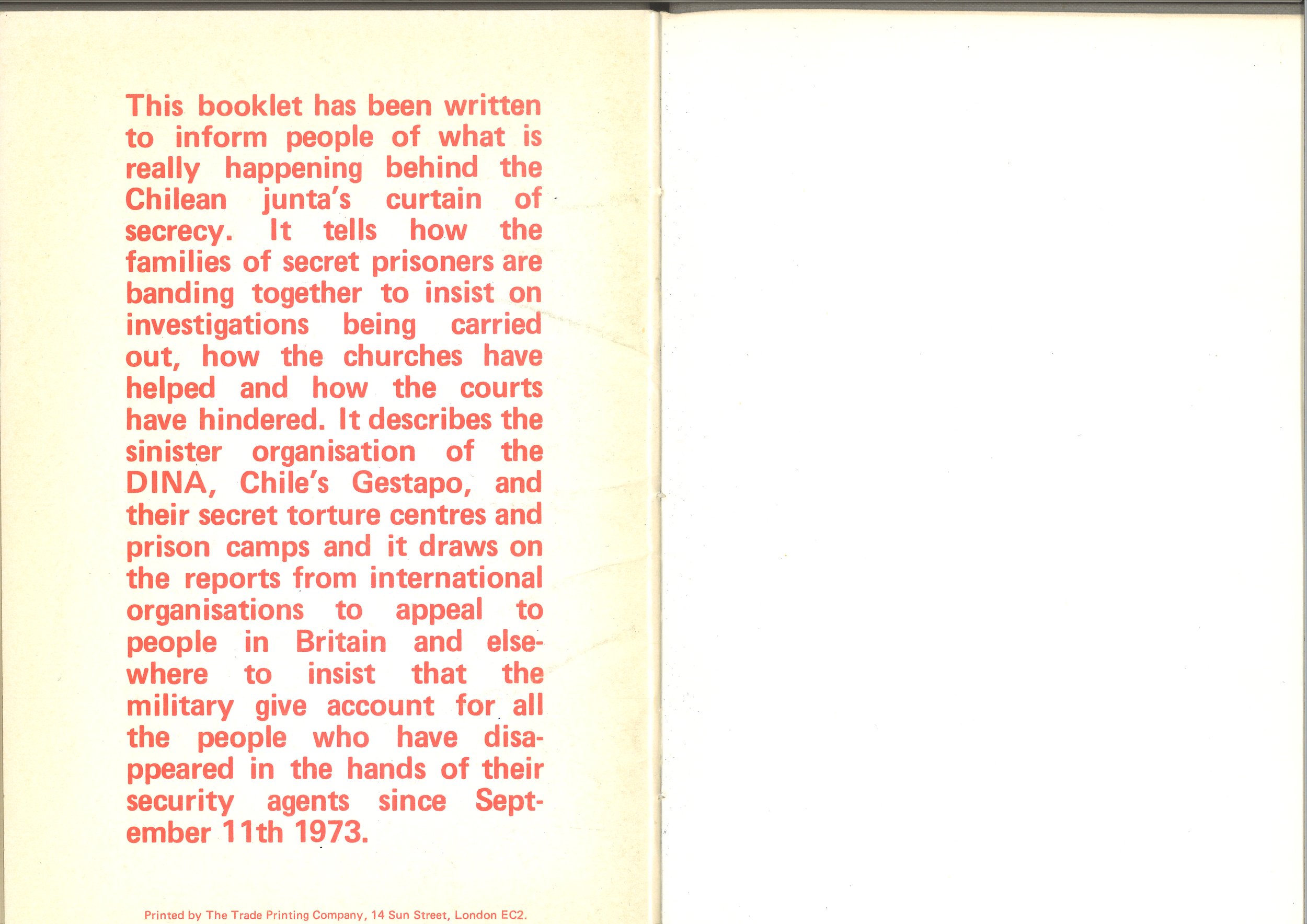
Amnesty’s report on human rights 3 years after the coup is available to read in full via Amnesty’s website.
Chilean exiles in Britain were also instrumental in recording abuse and fighting for justice after 1973. Memoria Viva, for example, was a collective project born in Britain during the 1980s. Now bringing together Chileans around the world, it has sought to document and evidence human rights violations for over thirty years.
Sheila Cassidy
Sheila Cassidy – a British doctor imprisoned and tortured in Chile in 1975 – alerted many to the regime’s brutality through her media appearances and memoir. Her ordeal led Prime Minister Callaghan to recall the British Ambassador to Santiago. Here, she is questioned about what happened to her in Chile.

